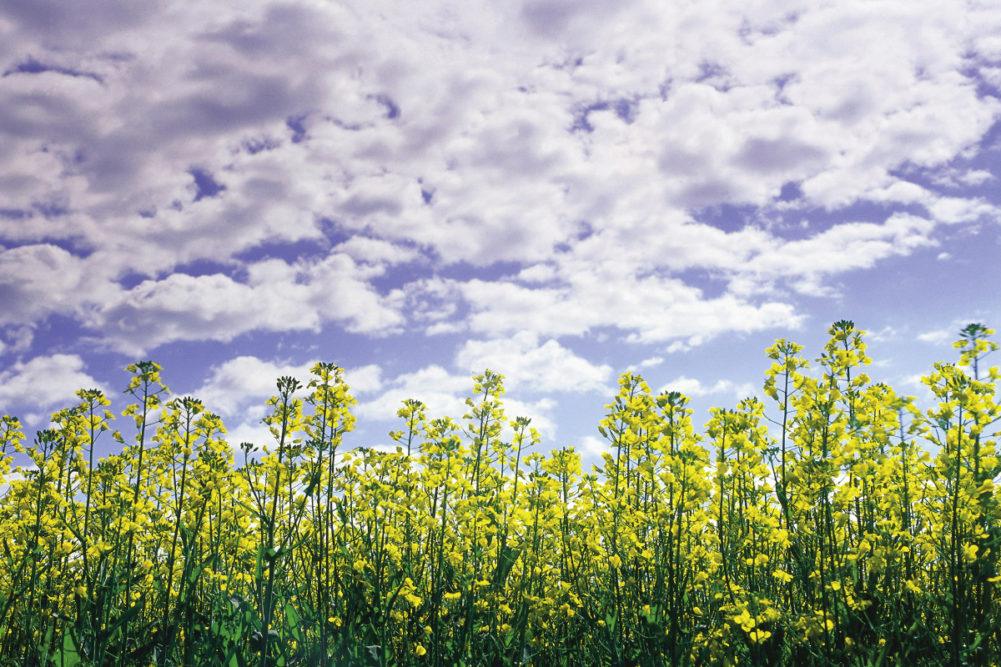OTTAWA, CANADA — Canada’s canola production and exports have been challenged by unfavorable weather, market access issues and transportation delays, according to a March 31 Global Agricultural Information Network report from the US Department of Agriculture (USDA).
Canada’s canola production is anticipated to slip 8% in the 2019-20 marketing year due to reduced area planted. A wet and snow fall harvest period impacted canola harvest.
“More than 2% of canola was left unharvested as of December 2019,” the USDA said. “Much of the crop harvested in November and December came off with high levels of moisture, between 12% to 15%, and at increased risk of deteriorating quality while in storage.”
Exports of the country’s canola seed took a hit as market access issues and African swine fever developed in China.
In March 2019, market access issues began affecting canola seed trade when China suspended the licenses of two Canadian companies to export their canola seed to China, citing non-compliance with its plant health requirements. Agriculture and Agri-Food Canada (AAFC) noted that at the same time China strengthened its inspection measures on all Canadian canola seed shipments.
In the first half of marketing year 2019-20, Canada’s canola exports fell 16% driven by a 1.65 million tonne loss of exports to China, the USDA said.
Canada’s export loss to China was slightly cushioned by increased market share in the European Union, due to low supply there.
“If EU supplies return to historic levels and Canada and China fail to achieve a resolution, canola exports will be severely hampered in market year 2020-21,” the USDA said.
Canada also dealt with grain and oilseed transportation delays in market year 2019-20. Protests and blockades over the construction of a gas pipeline stalled transportation across the country.
In mid-March 2020, the Port of Vancouver, from which 64% of canola and 21% of soybean ocean vessel-delivered exports departed in market year 2018-19, said the grain industry is one and a half months behind for bulk grain.
The USDA expects the transportation snag to take months for the industry to catch up on, not considering the impact of the COVID-19 outbreak.
“World and Canadian oilseed markets are expected to be impacted by COVID-19, but the full impact will not be known for several months,” the USDA said.
Follow our breaking news coverage of the coronavirs/COVID-19 situation.






